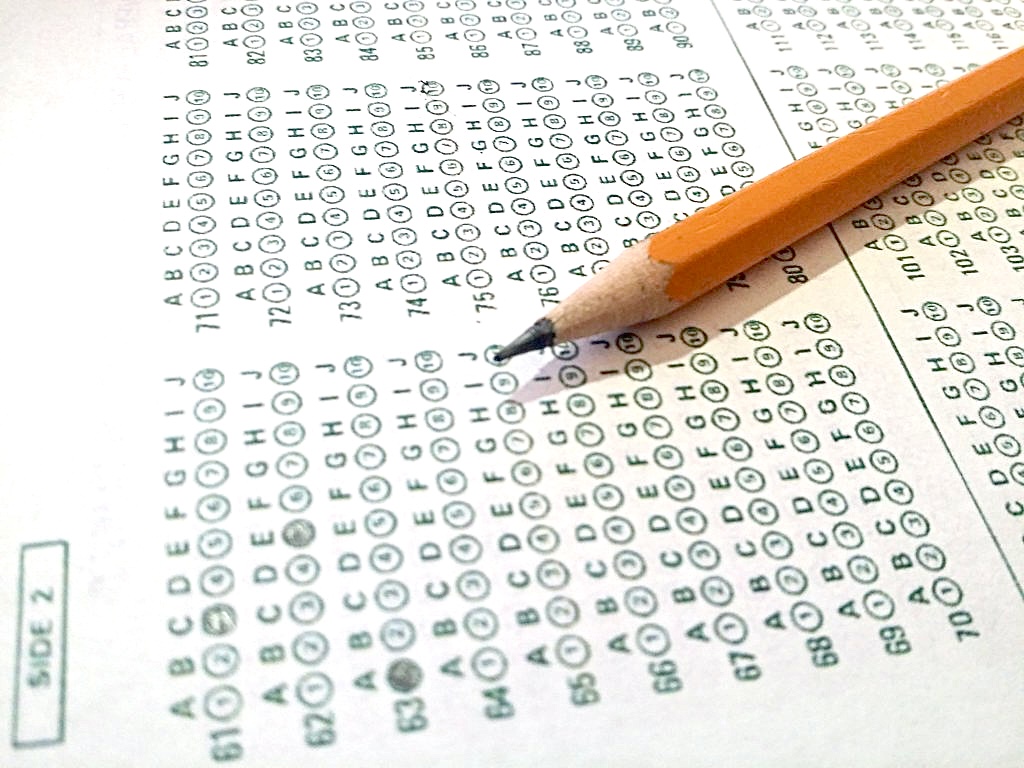The unnecessary and ineffective headache of standardized testing
The most popular forms of testing often don’t prove to measure a student’s mastery of a subject.
Exams and standardized testing are known by many as the end-of-term evaluations of a course’s material. Standardized testing is heavier than regular testing and exists to properly measure students’ knowledge at a certain time. You’ve likely heard of their “virtues,” and a professor of mine once said that exams are “opportunities to show what we know and not gatekeeping exercises” to lower our grades.
I wonder if that’s true, because after much research and reflection, I’m not sure it is. In fact, I’m going to explain some reasons why exams and standardized testing are not conducive to our learning.
Anxiety, which is often underestimated, is the first reason. When you think of exams, you probably associate it with anxiety and tiredness. For me, it brings up memories of being tired early in the morning and feeling stressed, which seems inevitable. Is this really the best state to take any form of evaluation? This stress is not typically present when doing other schoolwork, such as assignments. It may not seem like it, but anxiety ultimately plays a major role because, unlike assignments, tests must be completed at a specific place and time. This factor, along with the weariness, is sure to devalue one’s performance and grade. For this reason, I believe exams don’t accurately measure what you know, but instead what you happen to know at that specific moment. In other words, just one slip-up at that moment, and your knowledge of a course is perceived as being poorer than it actually is.
Now a counterpoint may be that, when it comes to exams, you must simply learn how to do it, but let’s really think about “it.” “It” involves being able to pour out all you know in just a few hours with no access to notes. In the professional world, when do you ever have to do that? You almost always have time and access to your materials. This is another reason why exams don’t help students, they don’t prepare us for situations in real life. Not to mention that not all disciplines can be accurately measured through standardized tests.
I’m an English major, and English exams often involve a portion of essay writing where we receive the question beforehand. So, we practice by writing an essay and then attempt to remember and rewrite it on the exam day. What is the purpose of that? The exam “essay” is guaranteed to be a regurgitated mess compared to our assignments! Writing takes time and cannot be properly evaluated in a limited block.
Now, if you think that this is just an undergrad’s whining, then you’d be wrong. There is literature supporting the idea that exams are not ideal measures of students’ knowledge. Take, for example, a research article regarding nursing students and how their exams changed during the pandemic. There were concerns about cheating, prompting measures to ensure academic integrity that caused anxiety among students. The article argues against traditional exams, stating that “students need to be equipped with critical thinking not simply information recall.”
My solution to this problem involves the greatest thing about pandemic schooling: take-home exams. Since we have multiple days to do it, the stress is lessened and we have materials to produce better answers. This would also help prepare us for the working world, where we’ll need to use materials to produce work. Thanks to a greater amount of time, these exams can cover more material, thus giving students a fairer chance to show what they know from a course. So, the next time you’re up early for an exam, remember these good reasons regarding why you should not have to endure it.
Staff Writer (Volume 49 & 50) — Yusuf is in his fourth year completing a double major in English and Cinema Studies and a minor in History of Religions. He first joined The Medium in 2022 when he sought to get involved in the on-campus community. He has developed strong writing skills throughout the experience and enjoys learning about new topics he wouldn’t know about otherwise. You can connect with Yusuf on LinkedIn.


